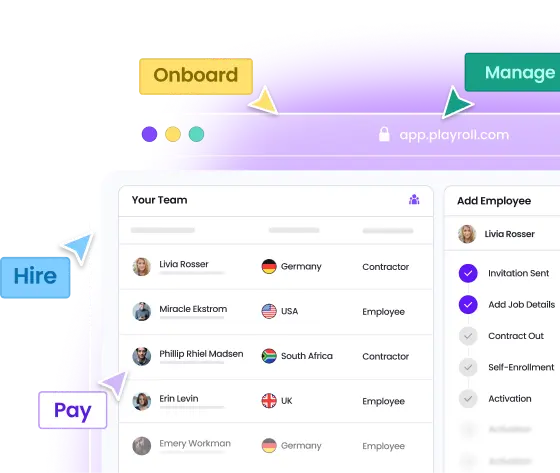What Are the Standard Working Hours in Qatar?
In Qatar, the standard working hours are clearly defined to ensure a balance between work and personal life. Here's an overview:
- Employees aged 18 and older: The maximum working hours are 8 hours per day and 48 hours per week.
- During Ramadan: Working hours are reduced to 6 hours per day or 36 hours per week.
- Meal Breaks: Employees working more than 5 consecutive hours are entitled to a break of at least 1 hour, which is not included in the total working hours.
- Typical Workweek: The standard workweek runs from Sunday to Thursday, with Friday and Saturday as the weekend.
Maximum Working Hours in Qatar
Qatar's labor laws stipulate that employees should not work more than 8 hours per day or 48 hours per week under normal circumstances. However, during Ramadan, these hours are reduced to 6 hours per day or 36 hours per week. Employers may request employees to work up to 10 hours per day, provided that overtime compensation is given.
Industry-Specific Exceptions
Certain industries have specific regulations regarding working hours:
- Security and Cleaning Services: Employees in these sectors may have different working hour arrangements, as determined by the Ministry of Labour.
- Shift Workers: Employees working in shifts may have varying schedules, but they are still entitled to rest periods and overtime pay as per the law.
- Public Sector Employees: Government workers may have different working hours and conditions, which are specified in their employment contracts.
Managerial and Exempt Employees
Managerial or exempt employees, typically those in higher-level positions, may not be subject to the same working hour limitations. Their working hours and conditions are usually outlined in their employment contracts. It's essential for both employers and employees to clearly define these terms to avoid misunderstandings.
Statutory Full-Time Working Hours in Qatar
Full-time employment in Qatar is generally considered to be 48 hours per week. This standard applies across most industries, ensuring consistency and fairness in employment practices.
Overtime Regulations in Qatar
Overtime regulations in Qatar are designed to compensate employees fairly for additional work beyond standard hours. Here's what you need to know:
What Counts As Overtime in Qatar?
Overtime is defined as any work performed beyond the standard 8 hours per day or 48 hours per week. This includes work on weekends or public holidays.
Maximum Overtime in Qatar
Employees are permitted to work up to 10 hours per day, including overtime. Any work beyond this is generally not allowed unless under exceptional circumstances, such as to prevent significant loss or address emergencies.
Overtime Payout Rates in Qatar
Overtime compensation is calculated as follows:
- Daytime Overtime: Employees are entitled to at least 125% of their regular hourly wage.
- Nighttime Overtime (9 PM to 6 AM): Employees are entitled to at least 150% of their regular hourly wage.
These rates apply unless the employee is on a shift schedule, in which case different rules may apply.
Rest Periods and Breaks in Qatar
Employees in Qatar are entitled to rest periods to ensure their well-being:
- Daily Breaks: After working for 5 consecutive hours, employees must be given a break of at least 1 hour, which is not included in the total working hours.
- Weekly Rest Day: Employees are entitled to at least one full day of rest each week, typically on Friday. Employers are prohibited from requiring employees to work more than two consecutive Fridays, except for shift workers.
- Travel Time: Time spent commuting to and from work is not considered part of working hours.
Night Shifts and Weekend Regulations
Working during night shifts and weekends is subject to specific regulations:
- Night Shifts: Work performed between 9 PM and 6 AM is considered nighttime work and is entitled to higher overtime pay rates (at least 150% of the regular hourly wage).
- Weekend Work: Employees working on their designated rest day (usually Friday) are entitled to either:
- An alternative rest day with regular pay, or
- Payment at 150% of their regular hourly wage for the hours worked.
Disclaimer
THIS CONTENT IS FOR INFORMATIONAL PURPOSES ONLY AND DOES NOT CONSTITUTE LEGAL OR TAX ADVICE. You should always consult with and rely on your own legal and/or tax advisor(s). Playroll does not provide legal or tax advice. The information is general and not tailored to a specific company or workforce and does not reflect Playroll’s product delivery in any given jurisdiction. Playroll makes no representations or warranties concerning the accuracy, completeness, or timeliness of this information and shall have no liability arising out of or in connection with it, including any loss caused by use of, or reliance on, the information.
.svg)
.svg)
.svg)





.svg)



.png)











.webp)









.svg)